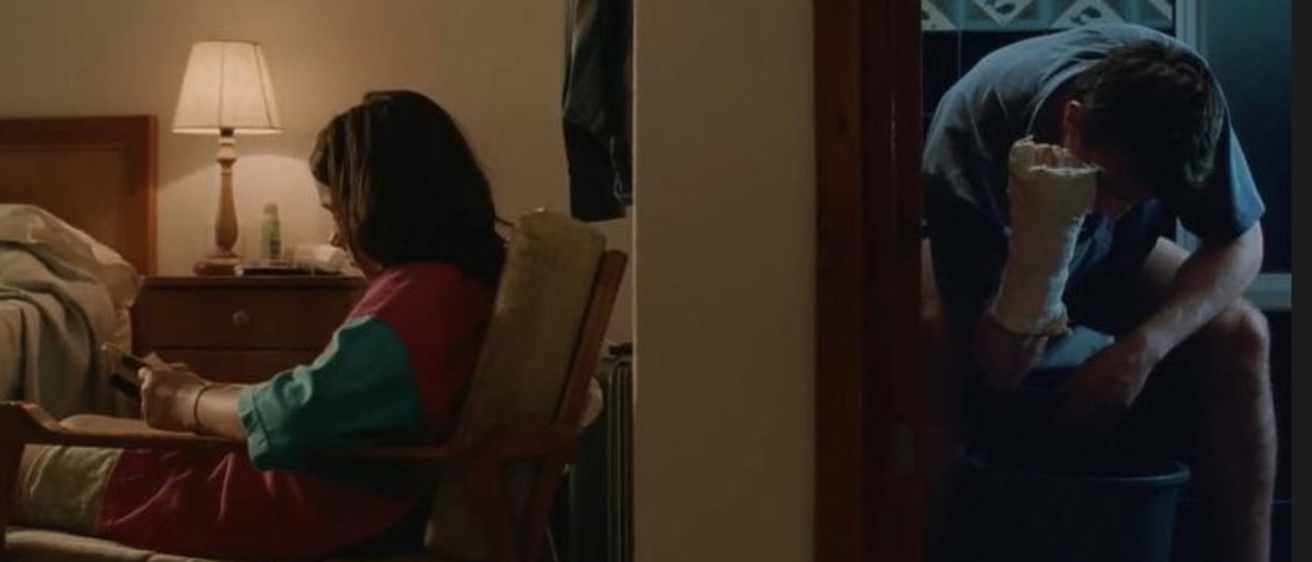Once a year, when my mind finally catches up with my sprinting body, I check my mother’s Facebook. Navigating her page has the same numbing reflexiveness as reciting the national anthem. I dash around the “remembering” logo, go to the photo album, and watch my life unfold before me. The first folder she created was from 2009– the cover photo is a youthful me, clad in pigtails and a shirt brushing against my knees. Tucked into this archive is the only footage I have of my mother. I reanimate her corpse, watching her arms shake as she meets my grueling directorial demands. The only element that takes me by surprise each revisit is her voice. My body turns cold, and the reel of my life winds behind my eyes as she laughs. As soon as I remember her, the video is over, and I am staring at my lonely reflection.
I knew from my past that Charlotte Wells’s Aftersun would be personal. I did not estimate that it would demand my vulnerability, peeling away at my defenses until I was a desperate and younger version of myself. I have never allowed myself to cry as hideously as I did throughout this film. My tears began from the first frame when I realized Sophie’s soft silhouette against the fuzz of the television. At that moment, I understood that Aftersun was not interested in only sharing grief from a single perspective. It is interested in the longevity of loss and the ways we reconstruct and redefine our ghosts. The vacation Sophie and her father Calum embarked on is filtered through the contemplative eyes of her adult self. Shots that begin on Sophie wander away, attempting to analyze Calum’s movement. Adult Sophie, as well as the audience, is assessing him for notable signs. Where is he showing fatigue? What did she miss, and what are we catching before her? Not only that, but Charlotte Wells made this film based on her personal life– how much of this is a reimagining of her ponderings? Calum is a prism, and every version of the mourning daughter twists him in their hands, recognizing something completely different. I especially felt this when Calum tells Sophie she can “tell him anything as she gets older”. The foreboding presence of Death poisons these words, making their earnestness bitter. Young Sophie believes she will not tell him anything because she is bursting into awkward adolescence– she does not know that it will be because life is cut short. Charlotte and adult Sophie are aware of this, as well as the audience. I appreciate these multiple angles– we will never see a person the same. We continue to change, and they stay the same, an enigma that slipped between our fingers.
I am thankful Wells captured this complicated relationship with loss– I have never seen my feelings put so earnestly on film. I am never young or old, yet I am wholly both. Sophie is the same. I lost my mother when I was 14– Sophie presumably lost Calum when she was a similar age. I have spent my entire life as an artist and daughter reimagining her. I regret being young and not recognizing mortality. I regret not holding on a little tighter and saying the right words– this regret is why I sobbed during the climax of Aftersun. Adult Sophie rushes to her dad in a club, grasping his shirt and hugging him. She tries to hold on because she finally knows him. This time can be different– he can stay, and they can heal together. Too quickly, however, he is gone. All she has left is the scraps of mundane moments.
It is time to rewind and replay and try again.
